Luis @ThePintExchange

There are people who go into business with the sole intent to make a living, others are in business to make lots of money. I think most are trying to make enough to retire early and some would like to do what they love till the day they pass. With all that being said I don’t pass blame on the owners of breweries that sell their business to large corporations.
Even though I do not pass blame on the owner, I do not feel it is necessary to support a business that not only does not see an end to their greed but also launches campaigns to hurt the craft industry. Supporting local breweries, who are independently owned not only supports the local economy but the nation as a whole.
Jamal @thehopcircles
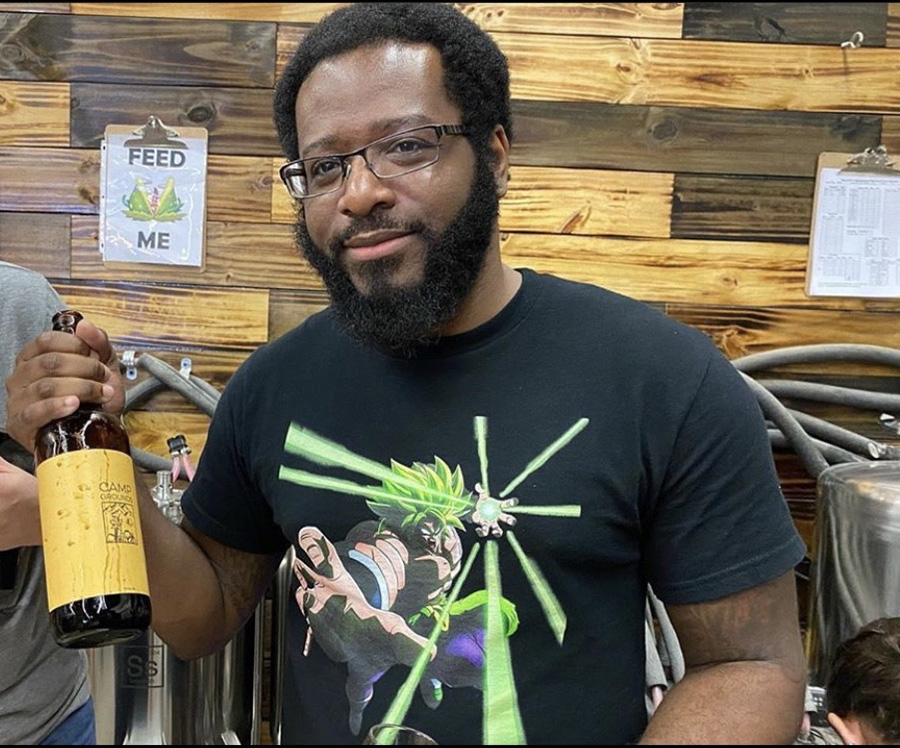
This Q+A actually took me a lot longer to answer than I anticipated and by taking a couple of days to put my words together you’d think I’d have an essay worthy response but I don’t. To answer the question at hand, I don’t think I care about ownership however, I’ve learned that subconsciously I mainly buy/drink independent beer or local. I care more about those breweries taking the initiative to be all about the community and the patrons, we’re all here for the same reason and that reason is the love for craft beer.
Lisa @hopsandflipflops
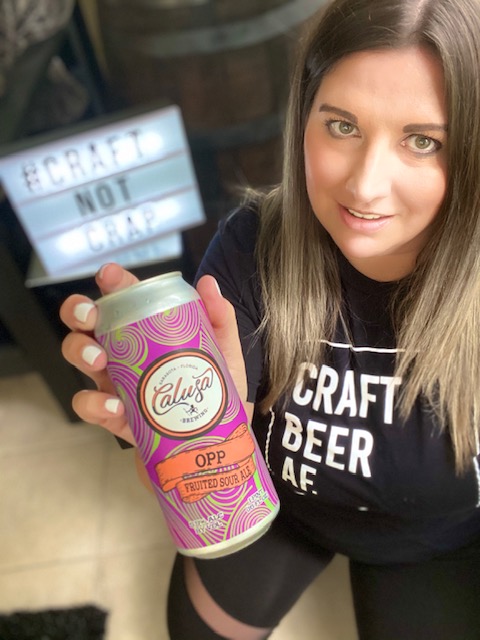
Do I consider brewery ownership before purchasing beer? I absolutely do, but I’ll readily admit that it’s hard to try keep track of all the sales and ownerships. I’ve seen a few great infographics out there that help sort it out but unless they are updated often, they aren’t always accurate. Recently, a marketing rep reached out offering to send me some Funky Buddha beer and I immediately thought about their sale to Constellation brands. When Wicked Weed sold, their very popular festival fell apart almost overnight. I posted (and quickly deleted) a beer that a friend told me had recently been purchased by AB InBev. I hadn’t heard of the sale and was disappointed.
Do I think of the beer differently? Absolutely. I try to check with the Brewer’s Association whenever I’m not sure to verify who is and isn’t “craft”. It’s a great resource to find out who is independent or owned by a “big”. You might be surprised by some (Veza Sur & Platform).
On the other hand, I see brewers and industry professionals downing the Nattys, High Life’s and PBR’s et al., on the regular. Big beer will always be here because of the money behind it – and they’re able to produce longer fermenting lagers and pilsners at a lower price point. It’s unrealistic to say that we’ll never buy it. We’ve all had a “big beer” owned beverage at some point, right?
Ultimately, beer is beer, but it is good to know what you are buying. What it comes down to for me is supporting locals and small businesses, so I’ll choose a craft beer over a “big” beer anyday! Today it’s even more important because it might mean the difference in the survival of a local craft brewery.
Brandon @BlackBeerTravelers
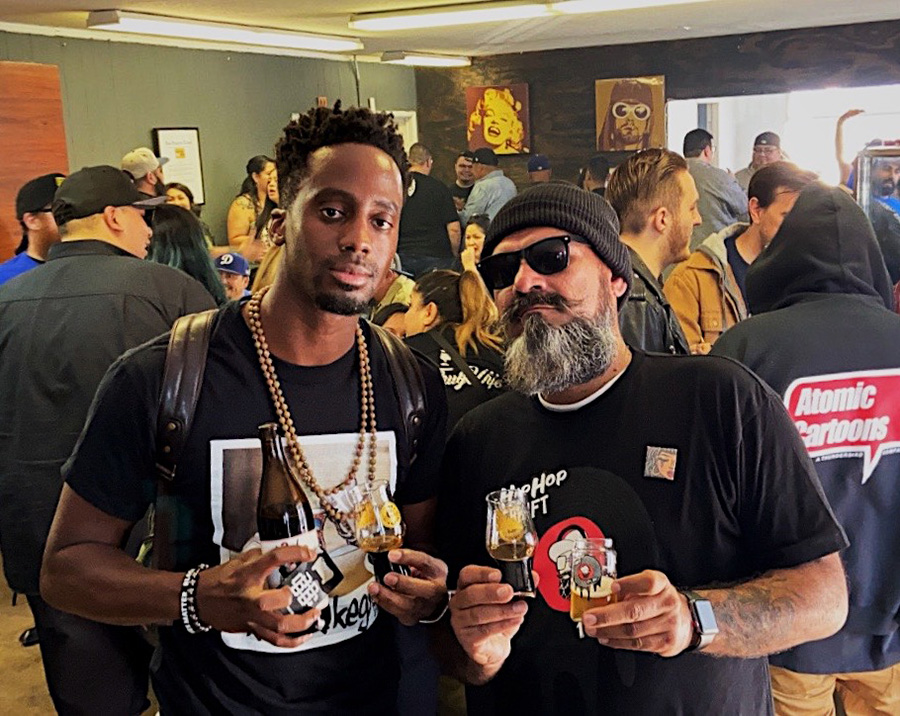
In regards to @BlackBeerTravelers, the ownership and independence of a brewery significantly influences the support provided because it’s directly related to who this page represents.
This page plans to Diversify Your Palate. It’s a challenge to everyone to step outside of their normal to experience cultures they have overlooked. We highlight the local and independent side of craft with a focus on the diversely owned (Black, Indeginous, People of Color and Women) businesses and their audience. Big beer tends to be a decent gateway to craft, but it also tends to lose the feeling culture. They fail to change the narrative of beer through reaching out to an overlooked customer base to build community into their brand’s heritage. Independent beer has this problem too but not on the same scale and rarely at a brewery that has a representative looking to build inclusion.
So, bring on all the craft beverages from those looking to truly share their stories and cutlure through their craft. At @BlackBeerTravelers, you’re always the first thought and focus.
P.S. We’re looking at you, Independent Craft, to be the leader of this new school.
Jeff @letshavesomebeershow

My opinions about this subject have changed quite a bit over the last few years. Back in the early craft beer days, Independence didn’t really matter to me. I simply wanted to try as many non-conventional beers as possible.
About 5 years ago or so, breweries began popping up everywhere. I came to the realization that we live in a time where I can spend my money at independently owned breweries and not really miss any beer from the “big guys.”
Now, we face a new challenge. Is it enough to be independent? What are these businesses contributing to the community that supports them? This has been on my mind a lot lately, especially given what’s going on in the world.
To make it clear, I currently only support independent craft breweries who make great beer and also support the community that drinks it. It’s not enough to make great beer anymore. We are a culture, a community of people from all different ages, races, and creeds. If a brewery is not at least trying to help the community flourish, then they are not getting my business. And to those who are, I will gladly drink and advertise the SHIT out of their beer!
Eduardo @Papi.Chulo.of.Craft

In regards to brewery independence, we vote on the businesses we like or choose to support with our wallet. And ultimately in search of quality and good customer service there is no debate. Small owned independent breweries usually provide both quality beer and great customer service. They know they only have one chance to impress a customer in a world where the next brewery is not too far away from another one, first impressions matter. I don’t fault any brewery for selling out. As a financial decision selling can provide a financial security small business owner may have not had previously. However, after the acquisition by a larger corporation I turn my dollar to the other breweries who are still working hard to make ends meet and provide for their local community. As a California resident there is no longer an excuse to buy big company beer. Almost every gas station at this point has an option to support craft. So choose wisely!
Patrick @patrickwatches

When I first started taking a closer look at what I was stocking in my fridge, I wasn’t so much concerned about the brewery behind it. I was just a kid in the candy store, seeing what interesting new stuff was popping up on the shelves of my local shops. As time has gone on, however, that has shifted. There’s at least one brewery I won’t buy from anymore due to their practices, and there are several that I’m always willing to try as I’ve built relationships with people who work there. In terms of big or small, that never really entered the equation for me.
In the more immediate times (post-COVID) I’m more acutely aware of wanting to support local breweries, and that’s where I’ve focused a lot of my attention. Fortunately, Chicagoland has a lot of independent brewers, and there’s no shortage of choice. In particular, my ultra-local choice is Noon Whistle, not just for the tasty products, but for them also participating in the “All Together” and “Black is Beautiful” collaborative brews, raising funds and awareness. So, sure, the idea of just trying new stuff, maybe something that someone recommends, that appeal will be there. But we can – and should – be conscious about who we’re supporting (and why), particularly if we’re looking to make a certain brand (whether large or small) taking up a recurring slot in our fridges.
Zack @broakland

I kinda wanted to touch on voting with your wallet and drinking beer that stands for something. I’m a huge fan of local beers and I love supporting the little folks whenever possible. With that being said, my all time outdoor adventure beer has been Coors Banquet, it’s so easy to snag a 30 pack before setting out and camping for a weekend. I recently learned that Molson Coors has a PAC that has done fundraisers for Trump and has donated to his campaign several times. Donating money to somebody like Trump, that quite literally stands for everything that I don’t, to put it politely, with the hard earned money I used to buy their beer with is a bummer, and I have since stopped supporting them. It’s important to know where your money goes, especially these days.
Laura @craftedandcuffed
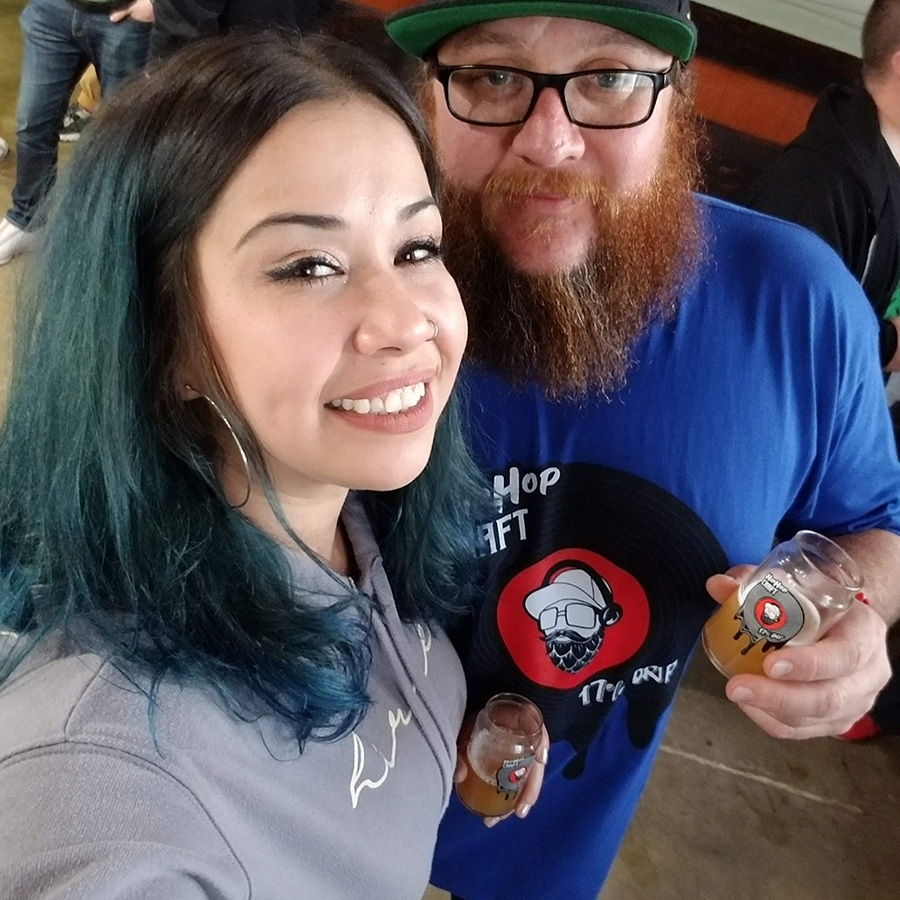
Quite a bit actually that it may be the sole decision on visiting or even returning to any brewery. As it goes for ownership, the places we visit and give our business to the most often are some of the best people you’ll ever meet hands down. Now on the flip side of the new visits, if the beer is good but their owners not so much we don’t make it back often.
Second part of the question craft beer independence is vital and key. From being engaged with the local community, the craft beer community, to being in tune with the art of brewing. We both feel and believe that once a brewery transcends from independent to corporate, that most of if not all the love, heart, and soul goes missing and then eventually becomes completely absent.
Nikki @nicole_marie_confetti

I DO care about brewery independence and ownership….
I am definitely more likely to spend more money somewhere with hardworking owners (and employees) that have a strong passion for craft beer and are active in the craft beer community.
I’m not going to say that I refuse to go to the breweries that “sold out,” because I occasionally do, especially with my friends who don’t really drink craft beer (can’t save them all…lol) but I prefer to drink at/spend money at/recommend the smaller breweries with cool owners that actually put their heart into their business.
Keith @bayareabeerblogger

I think that as the market becomes more crowded with local breweries, ownership definitely needs to be part of the conversation. When I started drinking craft beer in 2005, the shelves at my local Lueken’s Liquor were loaded with craft beer from all over the country, but the market has become way more crowded the last few years. It’s becoming more and more local Tampa Bay (and Florida as a whole) beers on the shelf. Some of the other beers have retreated back to their local markets because shelf space has become too competitive. Then, when you go to the grocery store, you’ll see a small craft section with a handful of local brews and then a handful pseudo-craft (stuff owned by the big beer industry but marketed as craft). It’s becoming harder and harder for small businesses to make a mark in our beer market, so I’m all for supporting them instead of big beer.
It’s no secret that tons of money is spent by lobbyists to establish laws that hurt small, local businesses. Blue laws and distribution laws are written that hurt smaller breweries. I personally enjoy supporting businesses that provide a really great product and have a positive imprint in the community, so I’m conscious of where I put my money. If I can support local spots (even more so during COVID times), I’m going to do so. And if I’m buying larger company beers, I’d rather give the business to someone like Sierra Nevada over a brewery that is owned by a large, faceless corporation. Plus, I’m lucky enough to have a huge craft beer scene in Tampa Bay that puts our quality products on a regular basis. I think we have to pay attention to where we put our money so that our craft beer community can thrive during these crazy times. I love the motto: “drink craft, not crap” and hope there are plenty of others who feel the same way. Cheers to supporting small business owners!
Émilie @la_petite_biere

As for ownership, it’s really important to me. Because I like beer, but I love the people behind it even more. If I know the owner of a brewery is racist, sexist, or disrespectful in any way, I will shun it for sure.
Regarding independence, I’m going to be the devil’s advocate. I’m someone who goes to a lot of music festivals, concerts, and sporting events. And a few years ago, there were only big corporate brands. So I paid 10-11-12-15$ for a beer with little taste that often left me very unsatisfied. But now I’m still paying 10-11-12-15$, but for better quality beer. So for me, it’s a win-win because I frequently go to places where they sell only big brands. And it gives me an extra opportunity to initiate people who are not familiar with more complex beers. And I know a few owners that sold and they are happy that way. So for me, if everyone is happy, I’m happy too.
In Canada, you cannot ship beers from one province to another. (Stupid prohibition laws!) So when Molson or Labatt buys breweries, they allow us Quebecois to discover products from elsewhere in Canada. And even some beers from the US.
The only major problem I see with big corporate breweries buying craft breweries is freshness. Be careful and look at the date of manufacture under the can. Because a 6 month stout can pass, but an NEIPA… not so sure!



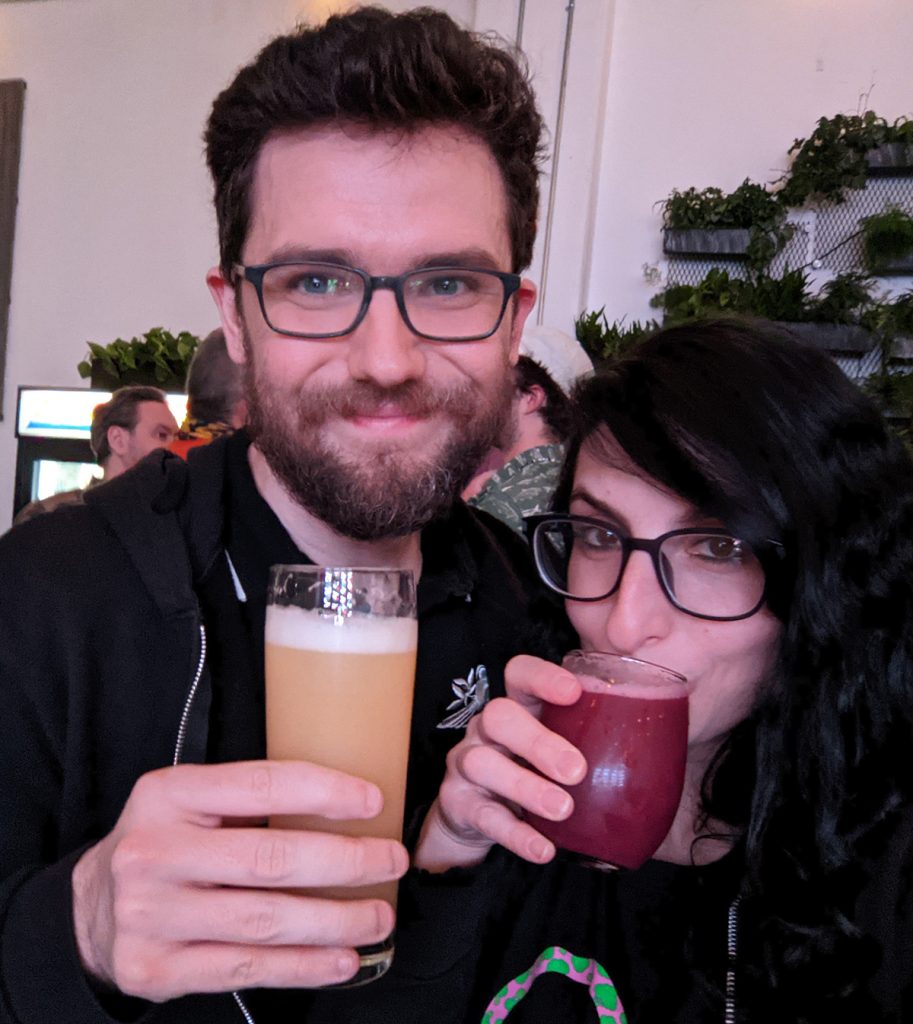
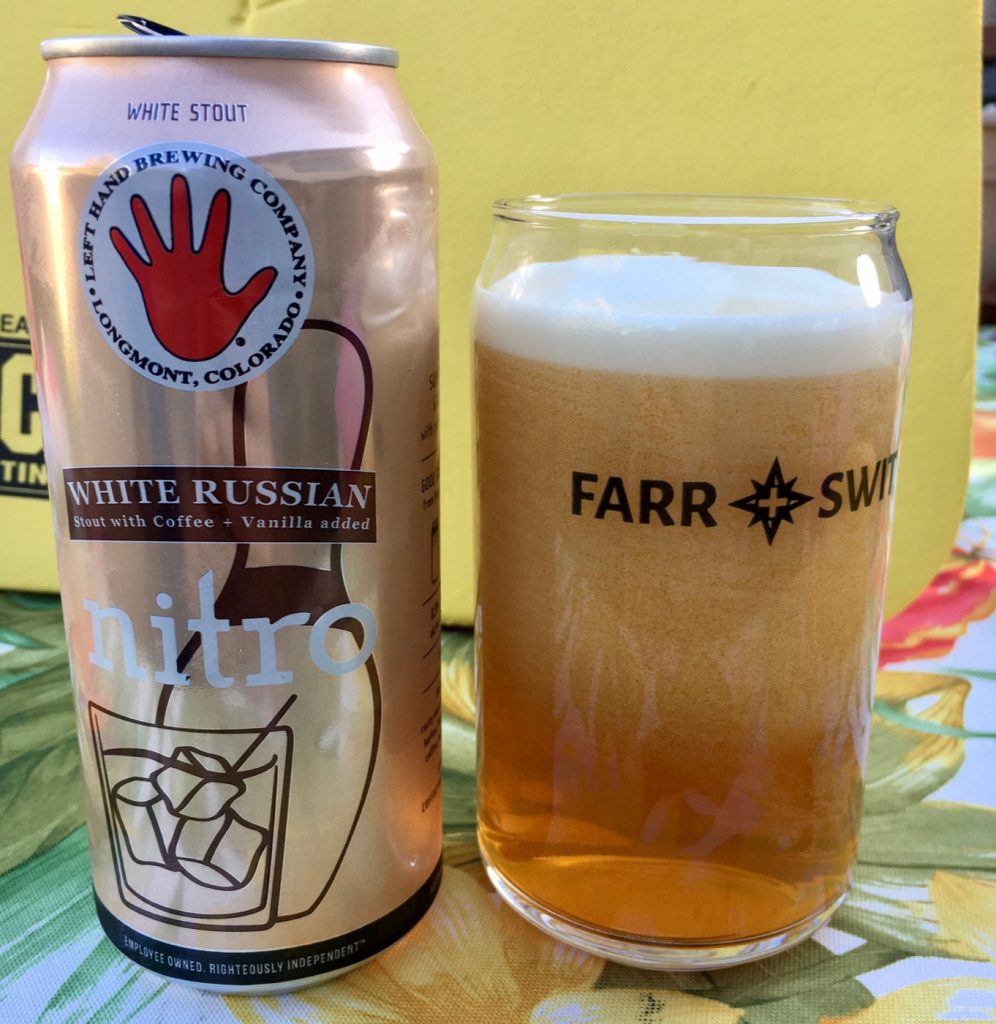
You must be logged in to post a comment.